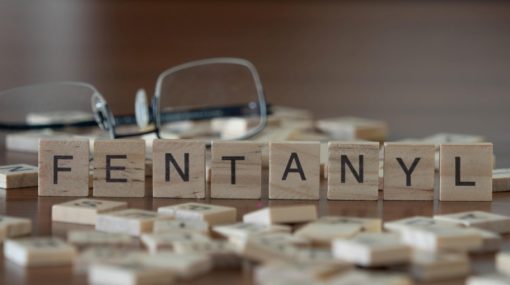Recovery is a lifelong process, full of ups and downs. And it is also very personal, with everyone’s recovery path following a different trajectory. As such, everyone’s addiction recovery timeline will be different. However, there is a general path that most people follow in terms of seeking treatment, becoming abstinent, and remaining abstinent in the long run.
In this article:
- Four Stages of the Addiction Recovery Timeline
- Addiction Recovery as a Process and Not a Destination
- Find an Addiction Treatment Program
Four Stages of the Addiction Recovery Timeline
Although the addiction recovery timeline varies from person to person, the National Institute on Drug Abuse (NIDA) has outlined four stages of recovery. These stages can help you know what to expect when you decide to enter treatment and quit using drugs or alcohol.
The four stages of addiction recovery include:
1. Treatment initiation
2. Early abstinence
3. Maintaining abstinence
4. Advanced recovery
Stage 1: Treatment Initiation
Treatment initiation involves making the conscious decision to ask for professional help. From a formalized treatment or recovery perspective, this is when you will undergo an assessment to gain admittance into a treatment facility.1,2
Treatment initiation best aligns with the first stage of change, the precontemplation stage, whereby you may be experiencing some ambivalence about permanently foregoing substance use, maybe even thinking that your current level of use is not that bad or not as bad as others.3,4 You may receive feedback from your support group that you are being resistant, unmotivated, or unwilling to change, or you may even notice that you have become hyper-focused on the negative consequences of this change rather than acknowledging the benefits; simply, the cons outweigh the pros.3,4
At this juncture, the goal of potential treatment providers and your support system is to help you actively decide to participate in treatment, which also includes accepting that abstinence is the goal. To facilitate this process, you may enter into the second and third stages of change, contemplation and preparation, as you examine damaging effects stemming from your substance use, explore feelings of denial, try to become motivated to work toward change, and research facilities you are willing to go to.3,4
Call 800-908-4823 Toll Free. Privacy Guaranteed. No Commitment.
Help is standing by 24 hours a day, 7 days a week.Stage 2: Early Abstinence
The cornerstone for this stage is education and learning. This stage best matches up to the fourth stage of change, action, because it is here that you have made a commitment to treatment, are in treatment, and want to continue treatment.3 Treatment may be inpatient or outpatient—both are great options and the right type for you depends on your needs. But what matters most is that you’ve entered treatment and committed to change.
You will begin to gain confidence in your ability to avoid substance use, as well as learn to utilize the coping skills you learn in rehab. Throughout the treatment process, you will continue to re-commit to your recovery and remain open to receiving assistance and support.3
The momentum gained from this stage is important because it is during this particular early stage of abstinence that you are more vulnerable to the influences below and are still trying to learn and figure out new ways of coping successfully:1,2,3,4
- Continued withdrawal symptoms
- Physical cravings
- Triggers to relapse
- Psychological dependence
- Social pressures to use
- High-risk situations
While you are in this stage, some strategies may help solidify your confidence, maintain your momentum, fill your time, decrease isolation, and improve self-efficacy. These strategies include:3,4
- Making positive contributions to the community
- Becoming involved in 12-step activities
- Setting goals to improve other areas of your life such as your nutrition, work, education, and health
- Spending more time with family members, friends, and/or significant others
- Participating in cultural or spiritual activities
- Either learning new skills or improving upon pre-existing skills associated with hobbies, sports, music, art, etc.
Stage 3: Maintaining Abstinence
You will enter this stage once you have maintained abstinence for about six months. This stage most closely coincides with the maintenance stage of change, whereby you are continuing to gain more confidence in your ability to sustain positive lifestyle changes you have learned and are less tempted to and fearful of relapsing.3
It is also during this stage that you become more cognizant of the relapse prevention skills you learned in treatment, which can bolster your confidence and help you protect yourself from triggering situations.3
Stage 4: Advanced Recovery
This stage most closely aligns with the termination stage of change, which you will enter after maintaining about five years of abstinence from substance use.
This stage focuses on the reinforcement of positive behaviors to have a fulfilling life and relies upon certain factors to assist with progression and abstinence, such as:3,4
- Understanding the process of change
- Being aware of and actively participating in the decisional balance process; the process considers the pros and cons associated with any type of expected or unexpected change whereby the greater the number of pros or even the intensity of the pros will be more highly valued over cons
- Having confidence in your ability to execute and maintain your chosen positive change when faced with the temptation to relapse
Strategies that can help you fortify some of the healthy habits you have been working on may include:3,4,5
- Actively seeking happiness and fulfillment (e.g., religion, spirituality, volunteer work, social activist groups)
- Reengaging in or finding new ways to participate in recreational activities that do not involve substances
- Establishing and adhering to a daily schedule
- Creating long-term goals and breaking those down into smaller steps to help you achieve them
- Forming social relationships with those who also abstain from substance use
The Addiction Recovery Timeline as a Process and Not a Destination
One of the inherent characteristics of being human is that life is fraught with the inevitability of change and unpredictability. Therefore, in some ways, moving through your own personal recovery process is more familiar than it is foreign, albeit perhaps a different type of willing, anticipatory discomfort.
As you begin to commit to positive change, keep in mind the four stages of recovery and how this complementary overlap with the stages of change can create a more manageable framework to conceptualize your process. Also this framework places a greater emphasis on cognitive and affective processes on the front end, while the later stages require and emphasize behavioral processes.3,4
If you enter into individual therapy as part of the recovery process, your therapist may take on different roles depending on which stage of change (or recovery) you may be in at that point, since this process is not linear. A therapist may take on any of the following roles as your stage of change fluctuates:3
- If in the pre-contemplative stage, your therapist may roll with your resistance and be nurturing, demonstrating empathy, and using active listening as they assume the role of a figurative parent.
- If in the contemplative stage, your therapist may assume the role of a teacher, challenging some of your beliefs to help you gain new insights.
- If in the preparation stage, your therapist may assume the role of a coach as they help you develop a plan when you are feeling ready.
- If in either the action or maintenance stages, your therapist will be providing guidance, support as needed, advice, and will act as a consultant.
During this recovery process, remember that self-care and the creation and maintenance of boundaries are important too. Many identify the establishment of boundaries as a form of self-care.
Boundaries are a focal point throughout stages of treatment because boundaries, physical, emotional, and mental limits allow you as the recovering individual to maintain your sobriety. Examples of unhealthy boundaries may include but are not limited to:6
- Entering into a new relationship, platonic or intimate, impulsively
- Ignoring your own intuition or feelings to please others
- Expecting others to automatically know what you want or need
Conversely, healthy boundaries are:6
- Weighing the benefits and consequences of a new relationship
- Maintaining those values that are important to you, even if your values conflict with others
- Expressing your needs, wants, and desires clearly to others
Frequently, boundaries will need to not only initially be established but also be re-established so that you may benefit:6
- Not saying “yes” to everything. Being okay saying “no” will help you better determine how your time is spent and with whom.
- Boundaries help you gain self-worth; when absent, you are vulnerable to making decisions that negatively affect your life or someone else’s, but when present, self-worth gives you a sense of identity and improves your respect for yourself and for others too.
- In a way that is devoid of blaming, boundaries improve communication.
- Boundaries help you take responsibility for your own behavior.
- You will feel more fulfilled because you are developing healthier and more rewarding relationships with others.
Find an Addiction Treatment Program
Call 800-908-4823 (Who Answers?) to find a a drug or alcohol treatment center near you. Talk to a treatment support specialist to discuss what to expect for an alcohol addiction recovery timeline or drug addiction recovery timeline specific to different treatment options.
Resources
- Lima-Rodríguez, J.S., Guerra-Martín, M.D., Domínguez-Sánchez, I., & Lima-Serrano M. (2015). Alcoholic Patients’ Response to Their Disease: Perspective of Patients and Family. Revista latino-americana de enfermagem, 23(6), 1165-1172.
- Dunn, K.E., Harrison, J.A., Leoutsakos, J.M., Han, D., & Strain, E.C. (2017). Continuous abstinence during early alcohol treatment is significantly associated with positive treatment outcomes, independent of duration of abstinence. Alcohol and Alcoholism, 52(1), 72-79.
- Raihan, N. & Cogburn, M. (2021, March 3). Stages of Change Theory. StatPearls.
- Substance Abuse and Mental Health Services Administration. (2018). Enhancing Motivation for Change in Substance Use Disorder Treatment.
- Pettersen, H., Landheim, A., Skeie, I., Biong, S., Brodahl, M., Oute, J., & Davidson, L. (2019). How Social Relationships Influence Substance Use Disorder Recovery: A Collaborative Narrative Study. Substance Abuse Research and Treatment, 13, 1-8.
- Hofmann, K. (2020). Build Better Boundaries: A Guide and Workbook.


